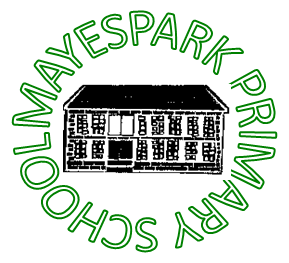Assessment
Assessment report
Statutory Assessments
EYFS
The EYFS baseline assessment is an online system. The teachers will assess the children within the first six weeks of them joining Mayespark. The teacher will assess the children one to one using an online assessment system. The reports of the outcomes for individual children can then be downloaded. An overall analysis is not produced from this assessment process.
Phonics
The phonics screening check takes place once a year in June. Children in year one are assessed along with any year two children that were unsuccessful the previous year. We assess phonics throughout the year using our school systems in order to group the children in RWI which supports their learning and best prepares them for the statutory phonics test.
KS1 SATs
During May, the year 2 children complete SATs tests. Whilst the papers are a useful assessment tool, the outcomes are not only based upon the tests. Year 2 teachers submit teacher assessments for the children. They moderate as a team and with other schools before submitting the outcomes as well as, using test score outcomes to inform their judgements. We were moderated by the borough last year and the feedback was very positive that the judgements were accurate.
KS2 SATs
The KS2 SATs provide the outcomes for year 6 pupils in spelling, punctuation and grammar (SPAG), reading and maths. Teachers submit a teacher assessment for writing which is moderated internally and externally by the borough every four years. The papers are completed in strict exam conditions that are invigilated and children who are unable to sit the papers will receive a teacher assessment. The KS2 SATs also take place in May however the writing assessment does not need to be submitted until the end of June.
Multiplication Tables Check (MTC)
In June the year 4 children take part in the MTC which is an online assessment system. They have plenty of practice and then take the test in the computer room usually in small groups. There is not a pass mark for this but we are able to analyse the results next to other schools.
Mayespark Assessment Systems
Every day
Assessment is an important part of teaching and learning and will take key place in every lesson. The teachers use Assessment for Learning (AfL) strategies to gauge the children’s understanding in lessons and adapt the lesson accordingly. They will also mark the work at the end of the lesson to assess the outcomes. Distance marking (DM) sheets are completed with the outcomes highlighting children who may need to revisit a concept and children who have exceeded expectations. All of this is then used to plan and prepare for the next lesson and direct focus groups for the next day.
Termly
Children in years three, four and five take part in tests in reading and maths once a term. This takes place within the last three weeks of term in order for the outcomes to be moderated and uploaded on to Insight (our assessment tracking system). The tests that we use are called PIRA and PUMA tests, they are produced by Rising Stars and the outcomes are used to inform teacher assessment. The test results are standardised by Rising Stars based on the results of a large number of children across the country.
Years 2 and 6 start the year by taking Rising Stars tests in the Autumn term and then switch to previous SATs papers. Past SATs papers are available online and parents and tutors have open access to them, this means that we have to be careful of relying solely on the outcomes of the papers although the remain very good indicators. Year 2 sit a past paper in the spring term and then will take part in a mock week early in the summer term. Year 6 follow the same timetable but next year we will introduce a past paper in the first half of the autumn term in order to give us a baseline assessment.
Year 1 also submit termly assessments but primarily use teacher assessment. The reading assessments are based upon the phonics outcomes and we will be introducing maths tests in the spring term this year in order to give us a more accurate understanding the outcomes.
Writing is a focus for the school and we are currently working hard on our assessment systems for this. We have just adapted assessment grids that the teachers will complete for the children in their class. This includes objectives for the pupils to meet in order to be at Age Related Expectation (ARE) for their year group. A minimum of three moderation meetings are planned throughout the year in order to ensure that the assessments are consistent.
Assessments for foundation subjects are submitted two times a year: Spring 1 and Summer 2. This information is presented to parents in the mid-year reports. Teachers use the progression documents produced by subject leaders to make their judgements and they are moderated throughout the year. We are in the process of gathering exemplars for each year group to aid with the moderation process.
